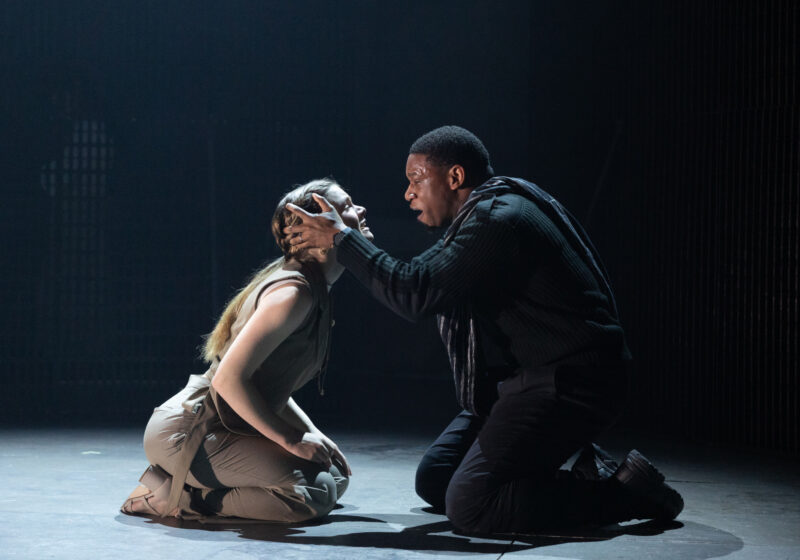“Unsettling” might be the best word to describe the International Theatre Program’s production of “Yerma.” Translated from the original Spanish by director Gisela Cardenas, Yerma tells the story of the titular woman’s deep desire for love, freedom and above all, a child. Her desire goes from innocent to desperate, from desperate to obsessive and from obsessive to maniacal. All the while, everyone in her small town has an opinion of her, from the husband who spurns her to the old woman who might not have Yerma’s best interests at heart.
The stark, haunting set establishes the bizarre tone right away. The lights come up on a single black tree planted among finely raked dirt, situated next to Yerma’s home, which consists of a single slanted tile floor. Looming over it all is an ominously large brick-red structure that serves as the backdrop for the play.
Yerma is played with restraint by sophomore Andria Rabenold, who shows a keen sense of when to pull back and when to explode. Her lines are delivered with a trembling strength that’s at once vulnerable and powerful. Her rapport with her husband, Juan (played by junior Zachary Stuckelman) is obvious, and their ultimate struggle is something to behold. Take 5 scholar Devin Goodman plays a sagacious old woman, and he does it without hamming it up for laughs—his performance gives off the sinister air of someone who just seems too genuine. During the penultimate religious ritual, his cackling is the icing on a terrifying cake. Junior Ian Von Fange is Victor, Yerma’s would-be lover, and his powerful voice promises more than Juan ever could. He and Rabenold’s brief interactions are electric.
As for that religious ritual—it is beyond comprehension. In the interest of avoiding spoilers, I’ll skimp on the details; but, if you see it, be prepared to be equal parts confused and awed. It wouldn’t be out of place in a horror movie, and it’s masterfully done.
Cardenas’ attention to detail shines throughout. Her unique staging choices help give the play its eerie feel, such as a scene where the town gossips wave a giant piece of fabric around themselves as they dance. And, again—that ritual is something to behold.
For fans of Lorca’s original Spanish iteration, fear not: the poetry of his words is still there. The production is vintage Lorca, with all the strangeness, sadness and love fully intact.





